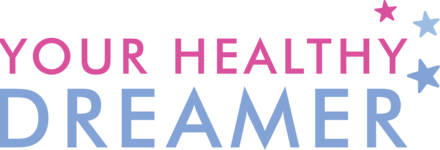Sickness and Your Child’s Sleep
Regular deep sleep enhances the immune system and reduces the risk of getting sick. Teaching your child how to attain long uninterrupted hours of night sleep along with predictable naps is your best tool for avoiding or minimizing future sickness.
However, once sickness does strike, it’s helpful to know that for many children it will affect sleep. Sleep is medicine for the brain so it’s reasonable to expect that your child will need more of it during times of sickness. Help them attain as much of this restorative sleep as possible to facilitate their recovery.
Take a look at my Top 5 Tips for Healthy Sleep to review the best ways to make sleep come easily to your baby, toddler, or preschooler. This is truly where you will find the most effective ways to facilitate easy sleep. But if your child is sick and you are short on time, let me summarize:
~ Go ahead and do whatever it takes to make their bedroom even darker. Allot enough time to go through your calm and predictable bedtime and pre-nap routines. Lastly, consider the sleep schedule and if naps are short or they are demonstrating more tired behaviors due to sickness, shift bedtime 15-30 minutes earlier than normal. ~
While your child may also be needing more sleep than usual, they might also be congested, or uncomfortable with GI irritation, body aches, or fever. Soothe your child in whatever way helps them sleep best, and always consult their pediatrician with any medical concerns.
Children with strong independent sleep skills may continue to sleep best alone in their usual safe sleep space with minimal to no interaction from their caregivers. Others may need more assistance from their caregivers to attain quality sleep. Being sick is hard and this is the time to offer all the TLC your child may need. Holding your child or offering other soothing techniques during sickness will not ruin any of the work you may have already put into teaching healthy independent sleep skills.
We all need a little more care during sickness. Offer that care in whatever way works and feels right to you, and know you can always reset on healthy sleep after sickness.
Sickness is not the time for the use of sleep training methods!
If you had been working to improve independent and healthy sleep skills before sickness came around, it’s time to pause. Continue to focus on sleep hygiene, but take a break from whatever response method you had been previously using. Instead, do whatever works to help your child get the restorative sleep they need to recover. Once good health is restored, then yes! Get right back into teaching healthy independent sleep skills using your comprehensive plan with a consistent response method. You will be extra motivated to help them get all of that rich consolidated sleep to help fight off the next daycare or preschool virus.
Re-setting Healthy Sleep After Sickness:
Congratulations on your child recovering from sickness! Now is definitely the time to work on healthy independent sleep skills to give their body a greater defense against the next circulating virus.
If your child has been struggling with independent sleep for some time now, find yourself a sleep consultant (A little bit about me here) and ask for the guidance and support you will never regret.
If your child does have a history of strong healthy independent sleep skills, but sickness really took a heavy toll on their sleep behaviors and skills, there’s always a way to re-set.
- Can their bedroom get ANY darker? Do it.
- Does their routine need a firm up on predictability? Think it through, stay consistent, and use your best tools to facilitate calm and cooperation.
- Can bedtime shift earlier temporarily? This helps to tack on an extra 15-30 minutes of the most restorative sleep that will help your child’s brain reset from any sleep debt that may have been accumulating.
- Remember the response method you used during your initial sleep training process, and kindly support them in remembering how very capable they are at falling asleep all by themselves.
If you are ready to work on teaching healthy independent sleep skills – whether it’s for the first time or a challenging reset, you may benefit from the guidance and support of a certified pediatric sleep consultant. Schedule a free 15 minute discovery call to connect and learn more about which of my services will serve you best in reaching your goals.

